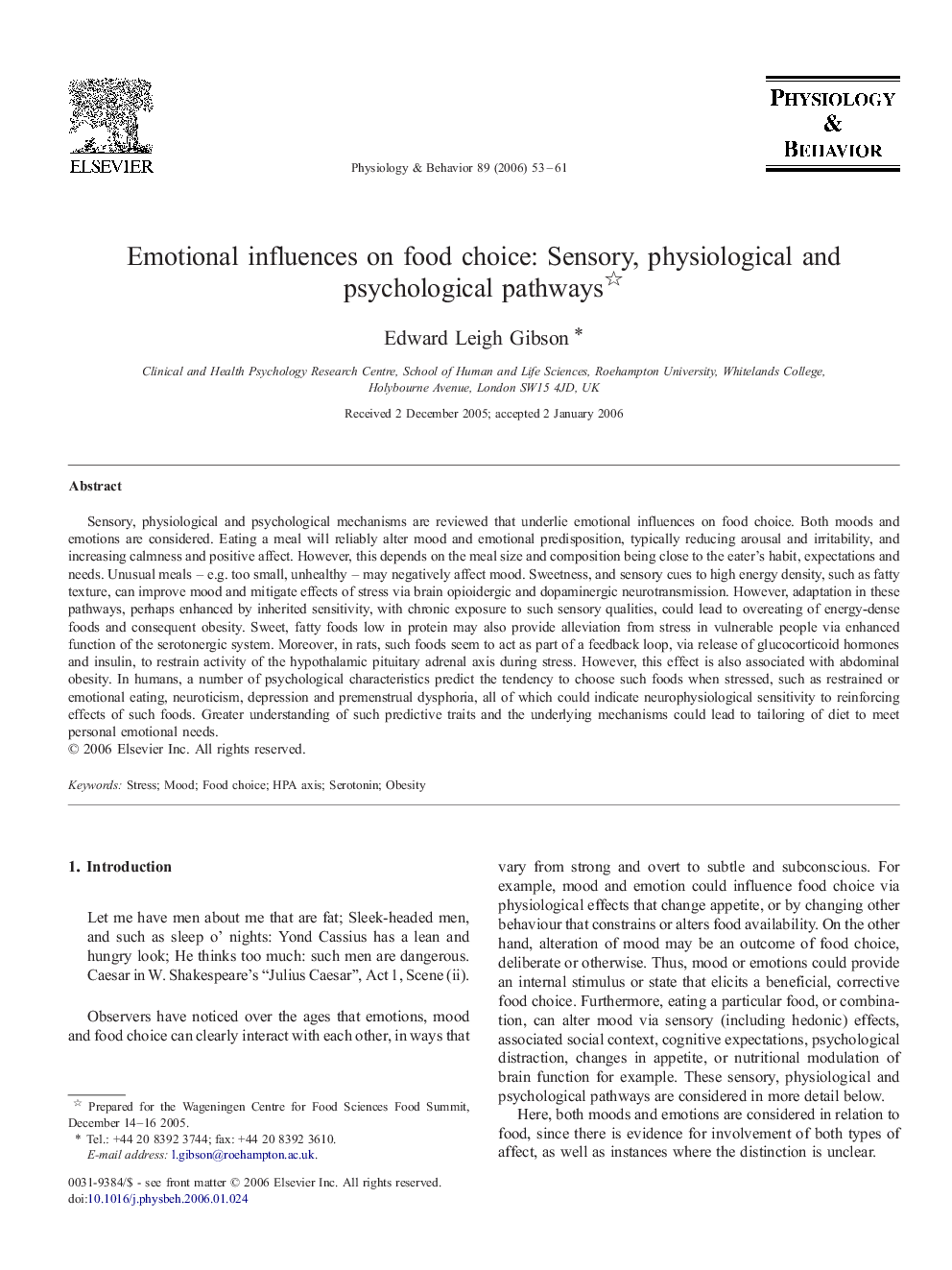| کد مقاله | کد نشریه | سال انتشار | مقاله انگلیسی | نسخه تمام متن |
|---|---|---|---|---|
| 2846430 | 1166420 | 2006 | 9 صفحه PDF | دانلود رایگان |

Sensory, physiological and psychological mechanisms are reviewed that underlie emotional influences on food choice. Both moods and emotions are considered. Eating a meal will reliably alter mood and emotional predisposition, typically reducing arousal and irritability, and increasing calmness and positive affect. However, this depends on the meal size and composition being close to the eater's habit, expectations and needs. Unusual meals – e.g. too small, unhealthy – may negatively affect mood. Sweetness, and sensory cues to high energy density, such as fatty texture, can improve mood and mitigate effects of stress via brain opioidergic and dopaminergic neurotransmission. However, adaptation in these pathways, perhaps enhanced by inherited sensitivity, with chronic exposure to such sensory qualities, could lead to overeating of energy-dense foods and consequent obesity. Sweet, fatty foods low in protein may also provide alleviation from stress in vulnerable people via enhanced function of the serotonergic system. Moreover, in rats, such foods seem to act as part of a feedback loop, via release of glucocorticoid hormones and insulin, to restrain activity of the hypothalamic pituitary adrenal axis during stress. However, this effect is also associated with abdominal obesity. In humans, a number of psychological characteristics predict the tendency to choose such foods when stressed, such as restrained or emotional eating, neuroticism, depression and premenstrual dysphoria, all of which could indicate neurophysiological sensitivity to reinforcing effects of such foods. Greater understanding of such predictive traits and the underlying mechanisms could lead to tailoring of diet to meet personal emotional needs.
Journal: Physiology & Behavior - Volume 89, Issue 1, 30 August 2006, Pages 53–61